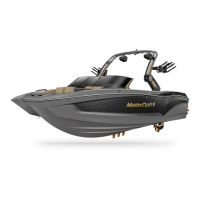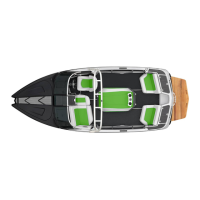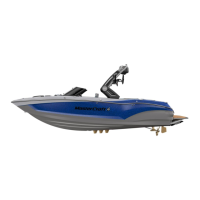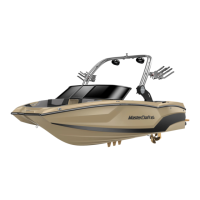NEVER tow with water in ballast tanks or bags. Failure to empty
ballast tanks, bladders or bags on the boat prior to towing can
result in improper weight distribution, which can cause towing
instability. This could cause the driver to lose control of the tow rig,
resulting in death or serious injury to the driver, any passengers
and/or to other motorists, or property damage.
Do not tow the boat with wakeboards, skis or other gear left on
the board tower racks. Doing so may void the warranty and cause
damage to the boat or to vehicles following behind, as boards and/
or racks may become disengaged.
Do not tow with any gear in the tower racks, even if the gear
appears to be secure. The racks are not designed to withstand
air pressure from highway speeds. Gear may become dislodged,
potentially causing damage to the boat or following vehicles.
Loose objects may damage the boat and/or trailer. Such damage is
not covered by the warranty.
Weight Distribution
Improper weight distribution within the boat can cause instability
and loss of control while towing, which may result in death, serious
injury or property damage.
Improper weight distribution can cause a boat trailer to fishtail
(sway from side to side) as it moves down the highway, putting
excessive strains on both the trailer and the tow vehicle, which
increases gas consumption and may potentially cause an accident.
The most effective way to guard against fishtailing is to make sure
the weight load on the trailer is properly distributed.
It is extremely important that a minimum of five percent (5%) and
a maximum of ten percent (10%) of the total weight on the trailer is
on the trailer coupling ball when the tongue is parallel to the ground.
A bathroom scale can be used for this determination. For example,
if the gross weight of the trailer, boat and gear is 3,000 pounds, the
weight on the tongue should not be more than 300 pounds, but not
less than 150.
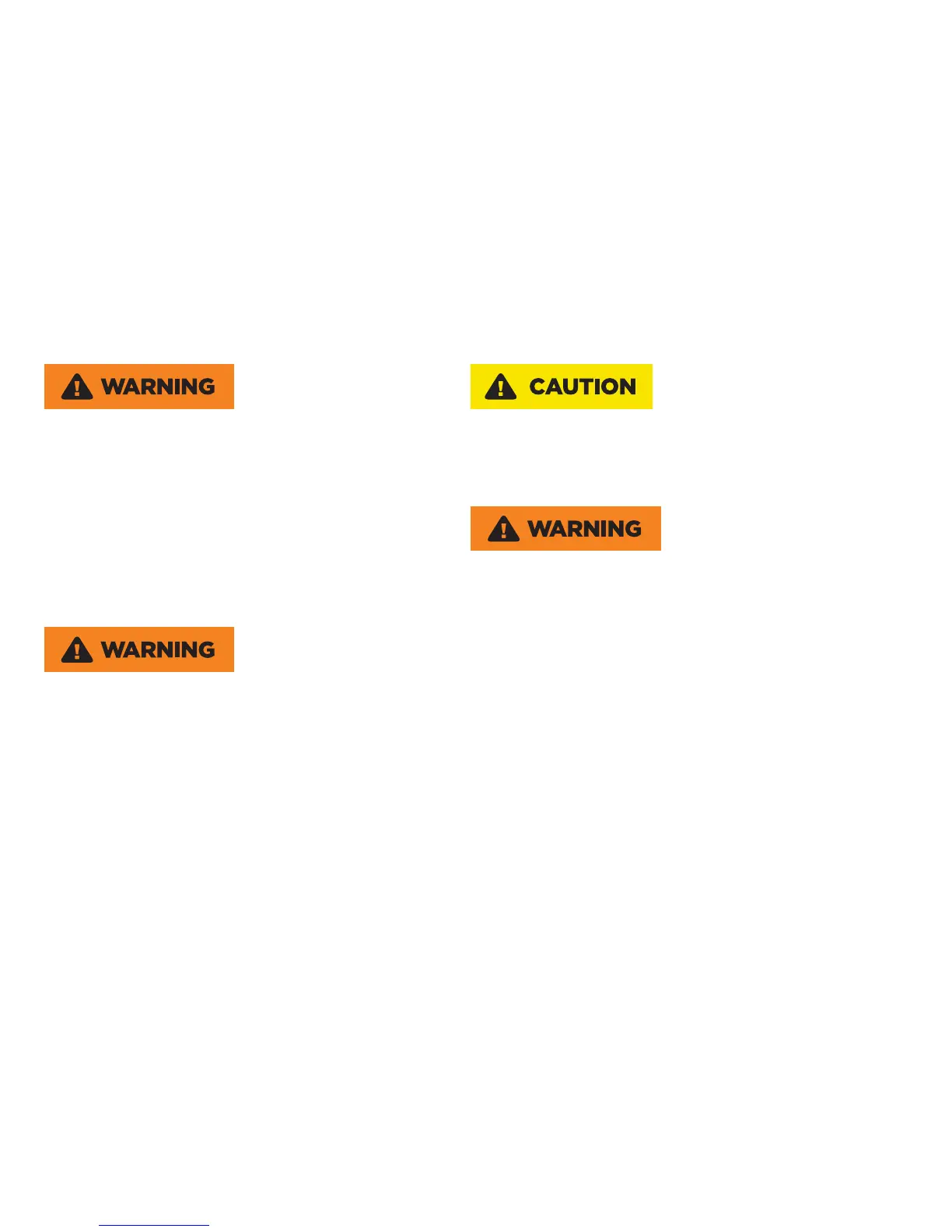